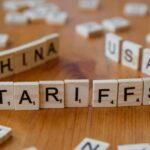Imagine waking up one day to find your bank account depleted—not due to fraud, but because of poor financial literacy. From mounting credit card debt to impulsive investments and poorly managed loans, this scenario is a reality for millions worldwide. Financial illiteracy isn’t just a personal setback—it’s a global epidemic.
According to a study by Standard & Poor’s, only 33 percent of adults globally are financially literate, leaving two-thirds of the world’s population navigating a complex financial world without essential skills. Emergencies only heighten this vulnerability, with nearly half of millennials holding less than $1,000 (Dh3,670) in savings. The consequences extend beyond individuals, impacting entire economies by fuelling debt crises, widening wealth gaps, and trapping generations in cycles of financial instability.
The Digital Revolution: Accessibility Without Understanding
The rise of technology has revolutionized financial management. Today, a stock trade can be executed as easily as ordering a cup of coffee. In 2023, investment apps recorded a staggering 117 million users, and in the UAE alone, trading activity surged 75 percent year-on-year, surpassing major markets like Spain and Singapore.
However, this accessibility comes with hidden risks. Without a solid foundation of financial education, users are more prone to reckless speculation—chasing meme stocks, diving into volatile cryptocurrencies, and sometimes losing life savings overnight. Accessibility without understanding, experts warn, can turn innovative financial tools into instruments of self-destruction.
Despite this new digital frontier, basic financial literacy remains alarmingly low. A global survey by Standard & Poor’s assessing understanding of inflation, risk diversification, numeracy, and compound interest found only one-third of adults could correctly answer three out of four questions. In the UAE, financial literacy rates stood at 38 percent, higher than the global average but trailing behind countries like the US and Japan.
“We expect people to make intelligent financial choices—buy homes, invest for retirement—without giving them the tools to succeed,” said Viktor Prokopenya, founder at Capital.com.
To read more lifestyle news click here.
Economic Risks of a Financially Unstable Population
A population lacking financial literacy increases dependency on social programs, fosters predatory lending, and contributes to market volatility.
However, financial literacy offers a powerful antidote. When citizens are equipped to manage money wisely, they are better positioned to contribute to economic stability, growth, and resilience.
Recognizing this, governments and private sectors across the UAE have taken proactive steps. Programmes like the New Economy Academy, under the UAE Prime Minister’s Office, are pioneering national efforts to foster financial literacy among Emiratis.
Similarly, the Ghaya programme, supported by ADGM Academy and the London Institute of Banking & Finance, has been working since 2020 to educate Abu Dhabi citizens. Partnerships like that of National Bonds with education specialists Taaleem aim to instil financial principles in students across 12 schools, while initiatives like the Kids Finance Initiative are developing financial education programs for schools, universities, and businesses.
Private Sector Steps Up: Empowering Retail Investors
The private sector is also playing a vital role. Investment platforms such as Capital.com are integrating educational tools directly into their apps, helping users at every stage of their financial journey. Their platform offers demo accounts, AI-driven insights, and a comprehensive suite of learning resources to ensure informed decision-making.
“As traders grow more financially savvy, we are witnessing a shift from speculative assets like alt-coins and meme stocks toward more stable investments such as commodities and index trackers,” noted Viktor Prokopenya.
The message from platforms like Capital.com is clear: Knowledge isn’t just power—it’s profit.
Financial Literacy: A Non-Negotiable Skill
The stakes are high. Financial literacy is no longer optional—it is essential for survival and success in today’s economy. It determines whether individuals build wealth or drown in debt, whether they thrive or merely survive.
By promoting financial education, both governments and businesses are helping to cultivate a new generation of empowered, financially independent citizens. This movement is especially crucial in rapidly developing economies like the UAE, where informed investing and saving can significantly contribute to national prosperity.
The journey toward financial empowerment starts with education. By ensuring that no one is left to navigate the financial world alone, societies can build a stronger, more resilient future—one where financial independence is within everyone’s reach.
To stay updated with latest business news follow 10X Times.






